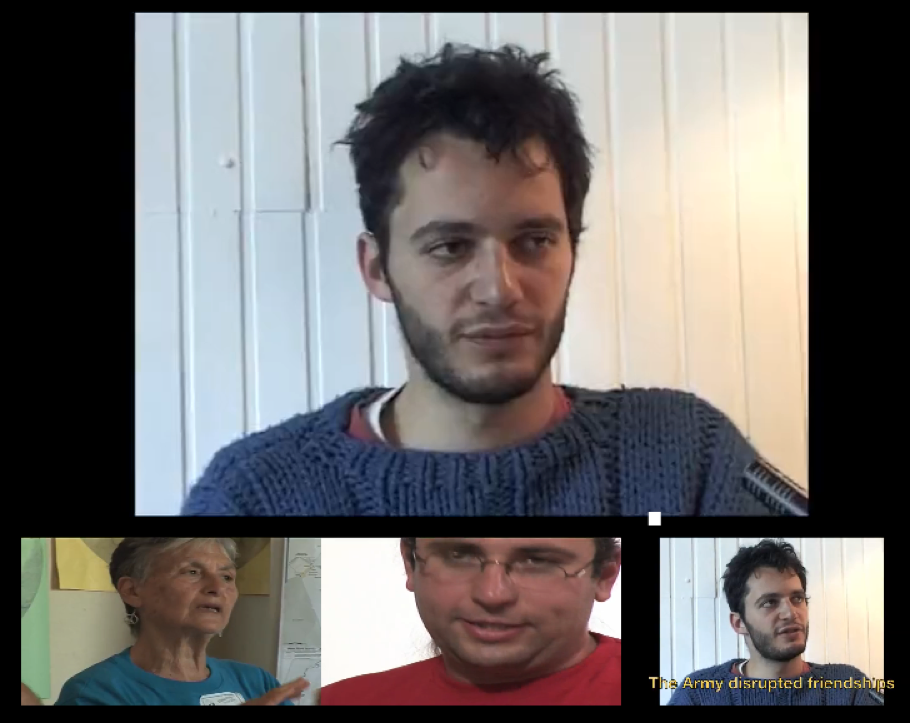The Only Democracy? » Human Rights Activists in the Crosshairs » Hudson’s co-founder, the Israeli academic purge and the subversion of US Middle East policy
Hudson’s co-founder, the Israeli academic purge and the subversion of US Middle East policy
Reposted from Didi Remez’s Coteret blog.
Evidence is mounting that the Institute for Zionist Strategies (IZS) — an Israeli NGO at the forefront of an ongoing campaign to purge Israeli Universities of faculty and programs deemed “left-wing” — is a creature of The Hudson Institute, a major Washington based neoconservative think-tank, which played an active role in shaping the Bush administration’s Middle East policies.
Hudson is the primary financial backer of the IZS, providing at least half of the organization’s total reported multi-year funding, but the connection does not end there.
Max Singer, co-founder of the Hudson Institute, its former President and current Senior Fellow, is also the IZS’s Research Director. At least according to his bio on the Hudson website: The IZS site only identifies him as a member of the Advisory Committee. Its 2006 brochure (page 8), however, states that he is a member of the International Board of Governors and as one of the ex-officio members of the Projects Committee, which “as such, are invited to all deliberative sessions and events.” According to the IZS’s verbal report to the Israeli Registrar of Associations for 2008 (the last one filed), Singer’s wife, Suzanne, is one of three members of the NGO’s “Council”, the sovereign decision-making body under Israeli law.
As the IZS’s Research Director, Singer would presumably be responsible for the research that pressured the President of Tel-Aviv University
to take the extraordinary step of examining the syllabi of his institution’s Sociology Department for “left-wing bias”. The introduction to the IZS’s 2006 brochure (page 1), which Singer co-signed, indicates that he saw this type of activity as part of the organization’s strategic purpose:
The IZS will help liberate the public discourse in Israeli society from the self-imposed constraints of the prevalent dogma and internalized notions of the politically correct. Israeli society needs to be freed from the acceptance of double standards so that we can become comfortable asserting our own national purpose as a sovereign Jewish community.
This goal would fit well within the stated purpose of a Hudson Institute project, which was launched at the same time as funding of the IZS began (emphasis in the original):
The Future of Zionism. The Center for Middle East Policy is launching a multi-year project to examine the future of Zionism and its implications for the State of Israel. Israel faces an ideological crisis: As the recent Gaza pullout showed, societal divisions between secular and religious Israelis and between left and right wing camps have become so pronounced that they threaten to overpower the Zionist consensus that traditionally unified the nation. [Hudson Institute Form 990 Report to the IRS for 2005, page 23].
For a generation, Singer has been involved in designing and promoting aggressive US foreign policy. In the early 1980?s he was on the board of Friends of the Democratic Center in Central America (PRODEMCA), a controversial organization involved in the Iran-Contras scandal. In 2002, he published The Many Compelling Reasons for War with Iraq.
A Democratic administration is in power in Washington and Singer has moved to Jerusalem, so he has found a new instrument for beltway influence: The government of Israel. From a July 17 policy note published by the Begin Sadat Center for Strategic Studies at Bar Ilan University (emphasis mine):
To prevent Obama from bringing America behind his different view of the world, Israel needs to help Americans appreciate the way that Obama sees things differently than they do. The views of most Americans, and of most of the American political world, are much closer to Israel’s understanding of Middle Eastern realities than to Obama’s perceptions. Israeli actions can help Americans to recognize the conflicts between what they believe and the premises of Obama’s proposed policies. The critical element in Israel’s policy concerning the US is the degree to which Israel is able to recognize, stimulate, and get the benefit of the parts of the American policy-making system that do not share President Obama’s radically different ideas about the world. Israel does not have to act as if Obama’s views will necessarily determine the policy of the US, and it certainly does not have to assume that Obama’s current views will dominate US policy-making for many years. Israel has the power, if it has the fortitude, to influence the degree to which Obama is able to make the tectonic change in American policy that he would like to make.
Netanyahu’s Senior Diplomatic Adviser, Ron Dermer, seems to have acted on this advice, incurring the wrath of Rahm Emanuel. From Ben Caspit’s August 19 column in Maariv:
Emanuel was angry, he claimed, because Dermer briefed certain Americans, Jewish and non-Jewish, against the President and Emanuel himself.
Filed under: Human Rights Activists in the Crosshairs · Tags: Academic Boycott, Hudson Instiute, Im Tirtuz, Institute for Zionist Strategies, Israeli Universities, Max Singer











 “You have a choice! Israeli Anti-Militarists Speak”
“You have a choice! Israeli Anti-Militarists Speak”